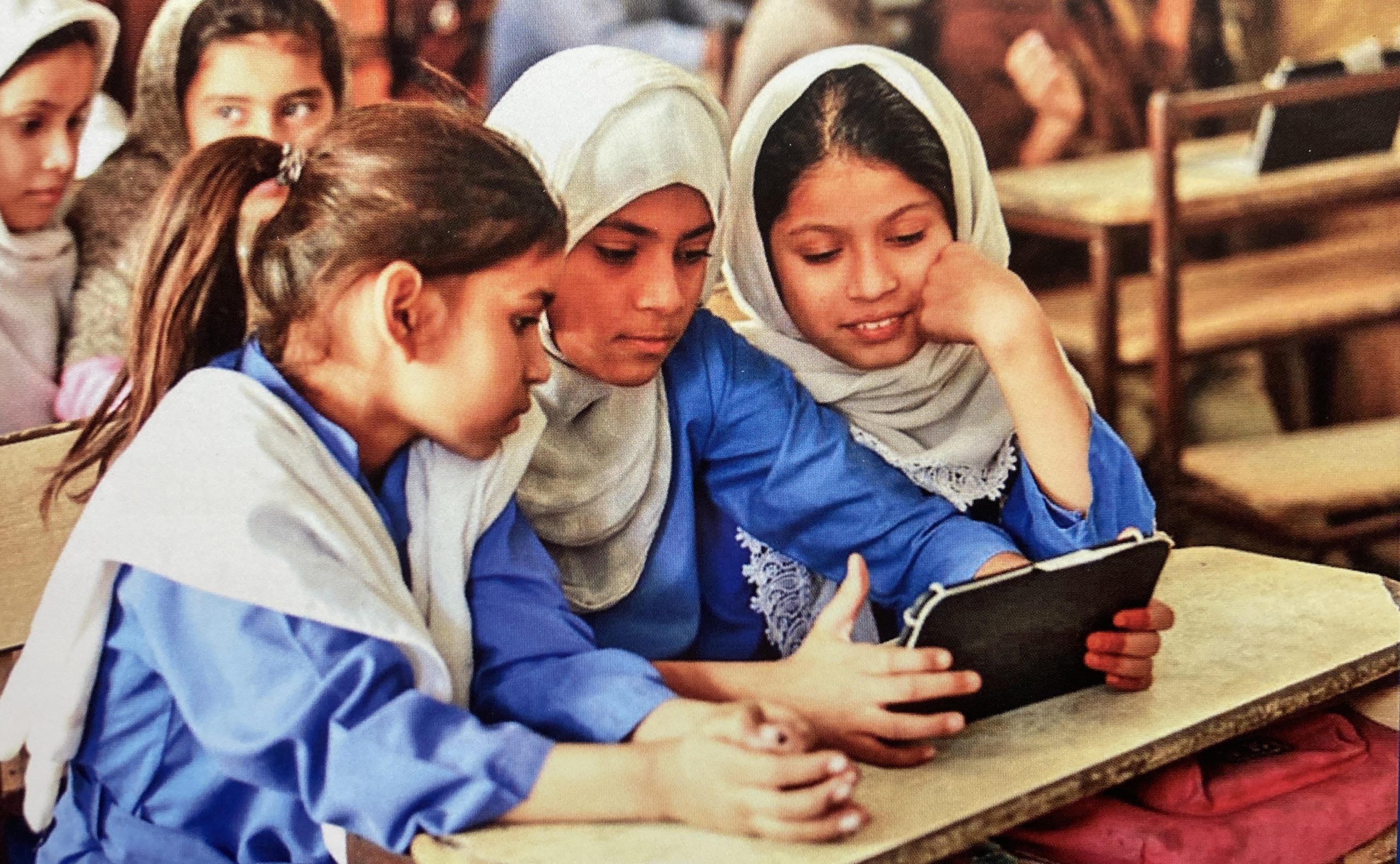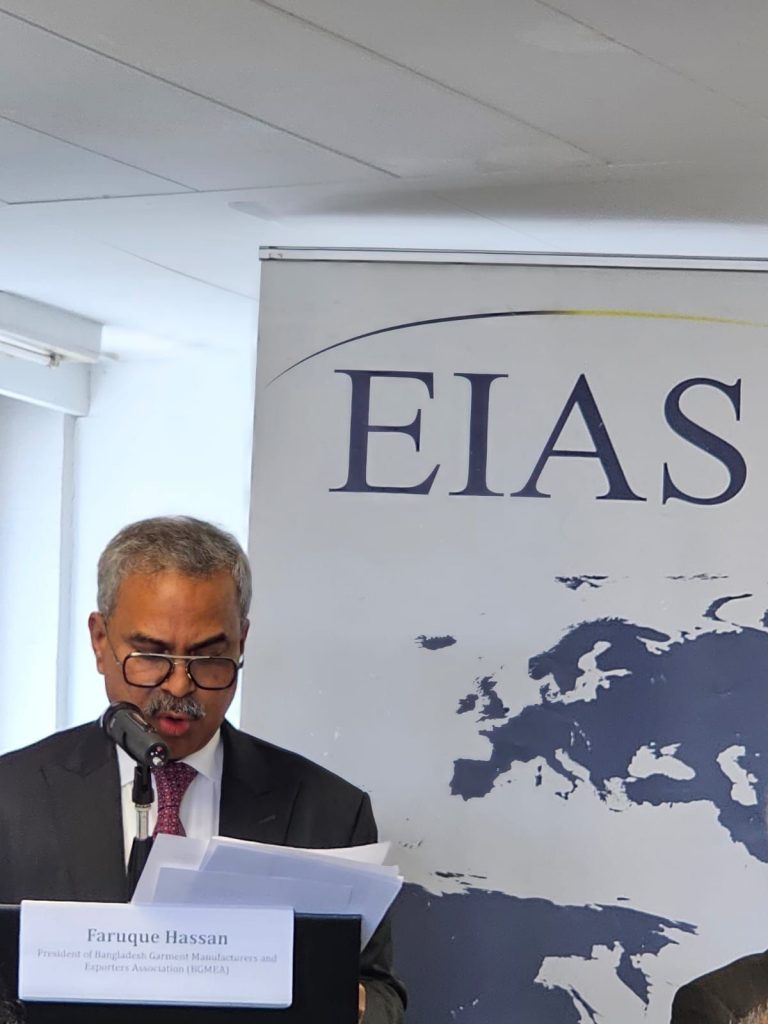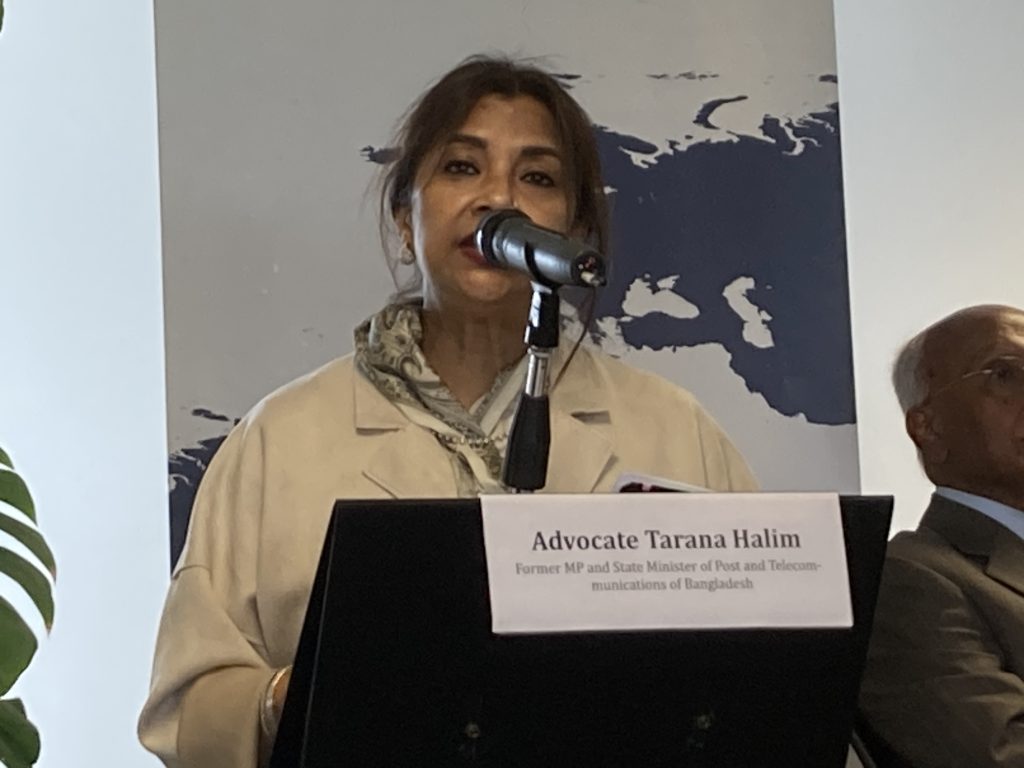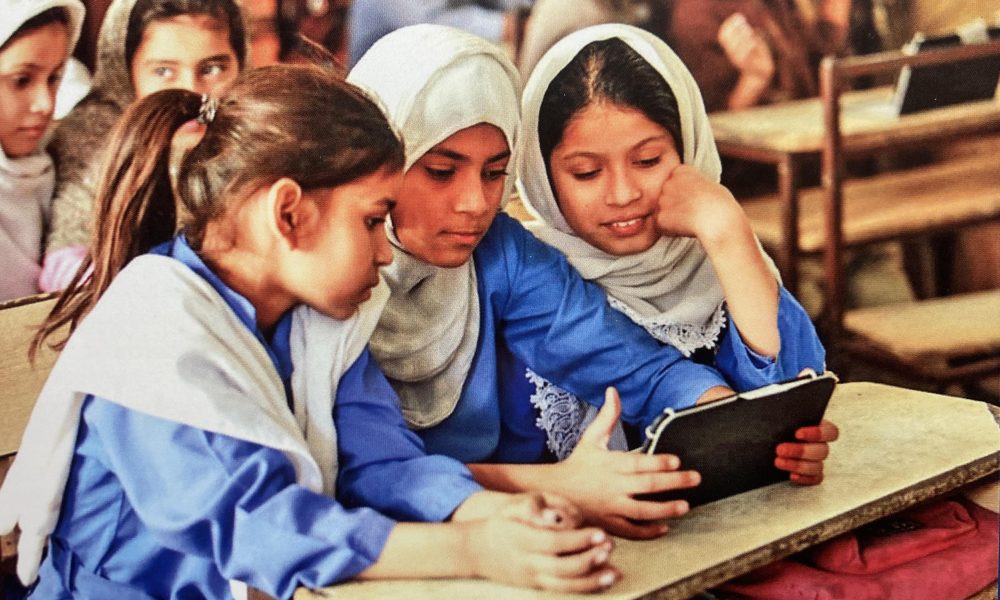Bilal9
ELITE MEMBER

- Joined
- Feb 4, 2014
- Messages
- 26,569
- Reaction score
- 9
- Country
- Location
PUBLISHED21 HOURS AGO
ON
JULY 8, 2023
By
Nick Powell

Talk of the Bengal Tiger might make you think about big cats or cricket but what’s really roaring is the economy of Bangladesh. A conference held at the European Institute for Asian Studies in Brussels on 05 July 2023 heard how a country that’s long benefited from EU aid and trade preferences has become an important partner with much to offer Europe’s exporters and investors. It’s time for a new Partnership and Co-operation Agreement, writes Political Editor Nick Powell.

In his opening address to the conference, Bangladesh’s Ambassador to the European Union, Mahbub Hassan Saleh, looked forward to “a great leap forward” in his country’s relationship with the EU by concluding the Partnership and Cooperation Agreement that both sides have agreed to negotiate. Bangladesh wanted a long-term strategic partnership, which would offer EU member states so much, not least through business opportunities to participate in a rapidly growing economy.

The keynote speaker was the President of the Bangladesh Garment Manufacturers and Exporters Association, Faruque Hassan, representing an industry that provides the livelihoods of 40 million people. “We are resilient people, who can rise to any challenge”, he said, describing as a revolution his country’s economic, social and infrastructure transformation.
A country once dependent on aid had become one of the world’s great trading nations, which had come back even stronger after the impact of the covid pandemic. His own manufacturing sector now accounted for most of the world’s top 100 garment factories, with the highest health and safety standards.

Mr Hassan said there was no complacency however, and close cooperation with the European Union continued. The future lay in putting quality ahead of quantity and value ahead of volume. He stressed the importance of extending Bangladesh’s tariff and quota-free access to the European market.
It’s access that was granted because Bangladesh was classified as a least developed country but it will formally graduate to middle income status in 2026. In practice it has already made it, Milan Zver MEP pointed out, passing the $2,500 per capita income level in 2021. (It reached $2,824 last year, an extraordinary increase from $843 in 2009). Mr Zver, who is Vice-Chair of the European Parliament’s Delegation for Relations with the countries of South Asia (DSAS), said the EU had outlined a multi-annual programme of cooperation with Bangladesh in areas including green efficiency and human capital development.

A perspective on just why Bangladesh has achieved such seemingly miraculous progress was provided by Syed Mozammel Ali, the chair of Study Circle, a London-based group of professionals dedicated to upholding the values of Bangladesh independence. He said the reason the government of Prime Minister Sheikh Hasina had achieved so much in a short time was because delivering a stable democracy had created the opportunity for economic growth.

She had truly upheld the values of the independence achieved under the leadership of Father of Nation and her father, Bangabandhu Sheikh Mujibur Rahman. Bangladesh is the only muslim-majority country in the world with no blasphemy law. “You have the same rights as I have”, the Prime Minister had told the minority Hindu community. Bangladesh had also taken on a heavy burden by giving shelter to over a million Rohingya refugees from Myanmar, now temporarily housed in the world’s largest refugee camp.
The EU has just announced another €7 million to help the refugees in Bangladesh and €4.5 million to help Rohingyas in Myanmar, where the refugees need to return. It should not become a forgotten crisis and the victim of donor fatigue, a former EU Ambassador to Bangladesh, Rensje Teerink, told the conference. She is now the head of the South Asia Division of the European External Action Service and wanted to emphasise how the EU-Bangladesh relationship had grown from one based on aid donation to a much more mature and strategic partnership.

Rensje Teerink said it was time to change the image of Bangladesh abroad, which was too often still one of poverty and sweatshops. She praised its government’s full and open dialogue with the European Union about meeting international standards for labour and human rights. She spoke of taking forward Bangladesh’s trade status to GSP+. Under the EU’s Generalised Scheme of Preferences, GSP+ links meeting international standards to continued unrestricted market access after graduating from the least developed country category.
Ms Teerink welcomed Bangladesh’s active participation in the EU’s Indo-Pacific strategy and said the country will play an important role in the Global Gateway, the European strategy to boost smart, clean and secure links in the digital, energy and transport sectors, as well as strengthening health, education and research systems across the world. Many projects in Bangladesh are being considered for inclusion.
She said a talent partnership with Bangladesh was envisaged, enabling the skilled migrant labour the EU needs to come to Europe. And as someone from the Netherlands, with its long history of controlling rivers and building sea defence, she was very impressed by Bangladesh’s Delta Plan 2100 to respond to the consequences of climate change throughout the 21st century.
All in all, it was time to “institutionally upgrade” the EU-Bangladesh partnership, by concluding a new Partnership and Cooperation Agreement; it would take a year or two, Rensje Teerink said. A crucial period could be when Belgium takes on the European Council Presidency next year. The Director for Asia and the Pacific at the Belgian Foreign Ministry, John Cornet d’Elzius, made it clear that there was great goodwill towards Bangladesh in his country, which had very much appreciated the hospitality shown to Her Majesty Queen Mathilde when she visited Bangladesh in February this year.
A member of the Bangladesh Parliament, Nahim Razzaq, said he could see that the European Union is energised towards Bangladesh. His country in turn was excited and confident about taking the opportunities that came with graduating to middle income status. It was embracing a green future, with textile waste being recycled and large-scale solar plants generating electricity.
The truly multi-talented Tarana Halim, a lawyer who has also been a singer, actor, MP and government minister took inspiration from how Bangabandhu Sheikh Mujibur Rahman had responded when asked what would happen to his newly liberated country that was devastated by war. “My people love me and I will build my country from ashes with the love and devotion of my people”, he replied.
Ms Halim described how Sheikh Hasina had come to power focused on her father’s vow. The building of vital infrastructure and poverty alleviation had gone hand-in-hand, with political stability putting Bangladesh on course for a trillion-dollar economy by 2030.
When elections are held later this year or early next year, they will be free, fair and democratic, she said. There is confidence in the rule of law and the world could be sure that Bangladesh would never resemble Pakistan or Afghanistan.

The ‘Bengal Tiger’ economy of Bangladesh
Talk of the Bengal Tiger might make you think about big cats or cricket but what’s really roaring is the economy of Bangladesh. A conference held at the European Institute for Asian Studies in Brussels on 05 July 2023 heard how a country that’s long benefited from EU aid and trade preferences...






